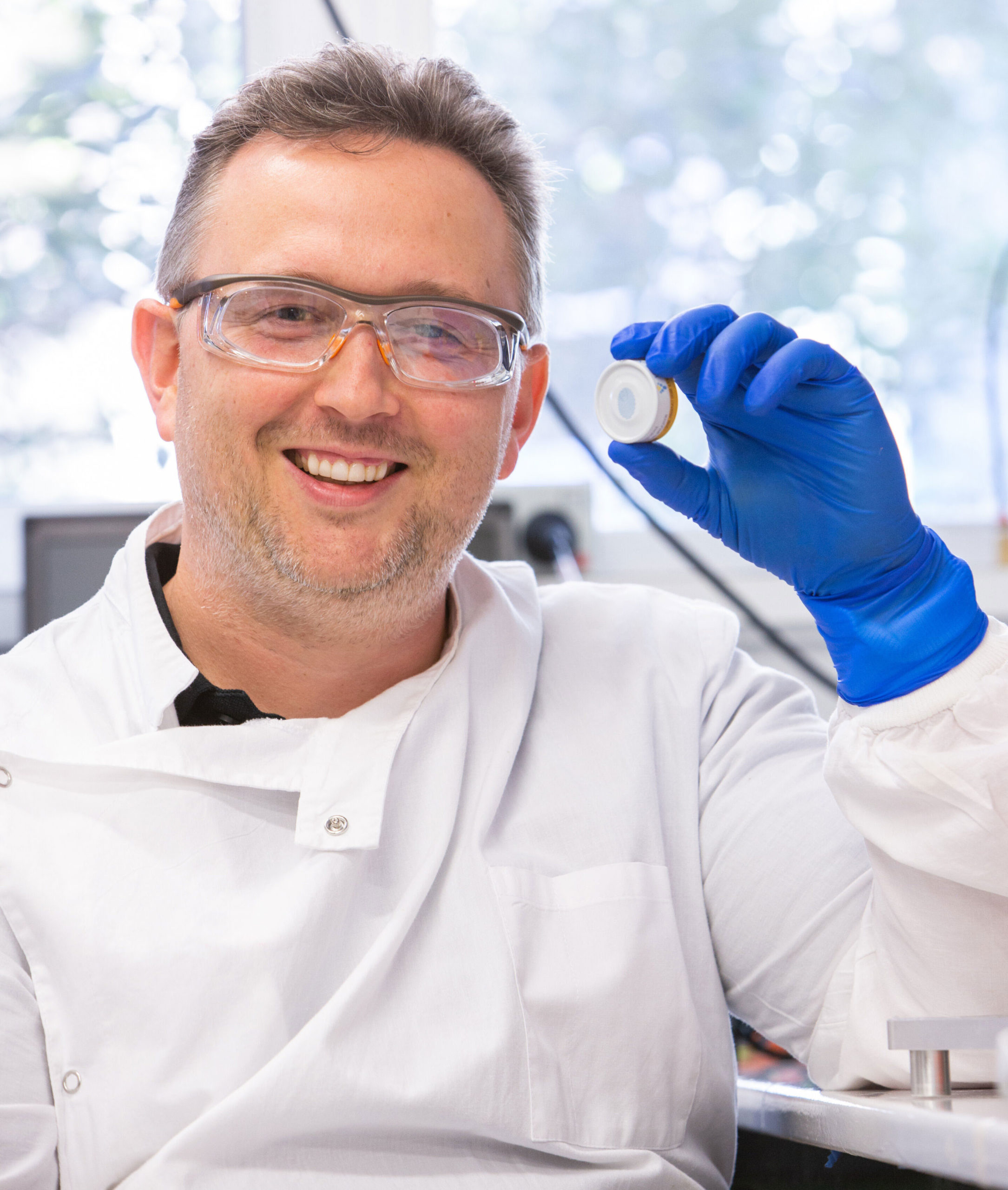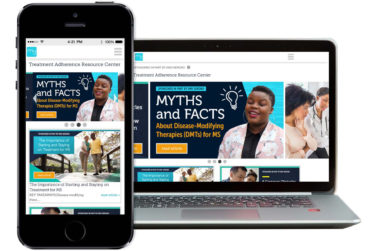Therapeutic Talk: Needle-Free Vaccines Are on the Way

The COVID-19 vaccine rush revealed just how large an issue Trypanophobia—or the fear of needles—is in the U.S. and worldwide. Harvard tells us that 25% of Americans have a fear of needles and it keeps 16% from getting vaccines. When shooting for a vaccination rate of 75% or above in the U.S., this represents a significant portion of the population who may be skipping their COVID shots. The U.S. and Australia are working together to develop a patch that will deliver medicine directly through the skin.
Beyond that, skin patches could assist with distribution efforts, because they don’t have cold-chain requirements—and might even heighten vaccine efficacy by spreading to more people in more areas and heightening herd immunity. The patches currently showing positive results in lab mice studies are lined with about 5,000 microscopic needles that can’t be seen by the human eye. The tips of these needles are coated with an experimental vaccine, and the patch needs to be stuck onto the skin with an applicator that resembles a hockey puck, according to David Muller, PhD, a virologist at the University of Queensland and co-author of the study published in Science Advances.
The University of Queensland study showed that the immune systems of those mice who got the patch produced high levels of neutralizing antibodies after two doses, including in their lungs, which is vital to stopping COVID. The patches even outperformed syringe delivered experimental vaccines. This makes sense, according to the researchers, because needle-delivered vaccines are inserted into muscle where there aren’t many immune cells to immediately react to the drug. The patch causes skin cell death in the area, triggering an immune response where many more immune cells can interact with the drug on the microneedles. This is a major advantage for developing countries where refrigerated vaccines are hard to deliver. Plus, a trained medical professional isn’t needed to apply the patch.
Burak Ozdoganlar, PhD, a professor of engineering at Carnegie Mellon University who works on this technology, tells Medical Xpress that he can produce 300 to 400 patches a day in his own lab, but hasn’t been able to test mRNA vaccines with the patch because he hasn’t been authorized by Pfizer or Moderna. The patch from the study is now being made by Australian company Vaxxas, which will start human trials this April. Two American companies, Micron Biomedical and Vaxess, are also striving to develop the technology.
“We’re working on a seasonal COVID and flu combination product that will be mailed directly to patients’ homes, for self-administration,” Vaxxas CEO Michael Schrader told Medical Xpress. The patch they are developing uses a COVID vaccine produced by Medigen and they are striving to produce enough patches to vaccinate 2,000 to 3,000 people in clinical trials next summer.
Patient Pages: DeepIntent Connects Ad Exposure to Patient Adherence
DeepIntent’s recent survey reveals new insight into how patients view pharmaceutical advertisements and what marketers need to think about when trying to deliver relevant content. Ads seem to empower patients to take a more active role in research treatments and influence their follow through in taking prescription drugs. In fact, according to the 1,244 U.S. patients surveyed in August, after seeing a pharmaceutical ad, patients’ most common action is conducting research, which they state as the most common factor influencing their medication adherence behavior.
The survey also revealed the significant challenges marketers face in reaching the right groups of patients with useful information. Specifically, DeepIntent found 51% of respondents feel an ad was more memorable when relevant to their medical conditions and 37% report that they have noticed more ads served to them over the past 12 months. Americans over the age of 55 are most likely to report seeing more pharmaceutical ads and they were the most likely to report online research as a factor in prescription follow-through while saying that they always take prescription medications prescribed by their doctor (41%). Importantly, non-white respondents were more likely to agree that having seen a pharmaceutical ad made them feel more informed to discuss it as an option with their doctor, revealing a clear path for pharma marketers to target the American population that has been traditionally underserved and help improve their healthcare outcomes.
Med Device Department: New At-Home COVID Test Approved

Detect Inc., a little-known Connecticut-based health technology company, has received the FDA go-ahead for its PCR-quality, at-home rapid molecular Detect COVID-19 test. The test kit will be available over the counter with the FDA’s emergency use authorization. Additionally, Detect’s technology identifies SARS-CoV-2, the virus responsible for COVID-19, at lower viral loads than traditional antigen tests, which means earlier detection and easier mitigation of pre-symptomatic spread. The at-home test kit comes with a reusable analyzer and cartridge-based tests that cost about $50. It usually produces results in just one hour. The Detect App helps users perform the test and interpret their results correctly.
In clinical studies, Detect had zero false-positive and a false-negative rate of 9%, agreeing with sensitive PCR tests over 97% of the time, making it one of the most accurate COVID-19 tests available. Detect is planning to provide routine testing in schools and workplaces, screening people without symptoms for preventative measures and providing a highly accurate test for symptomatic patients. The company is also ensuring that their results can be used for travel and event entry with an electronic travel pass system and add-on telehealth services in development. The design will allow users to take the test under the virtual guidance of a healthcare professional and produce a verified result.
FDA Update
Drug Approvals
The FDA granted accelerated approval to Novartis’ Scemblix (asciminib) for patients with Philadelphia chromosome-positive chronic myeloid leukemia in the chronic phase. Patients must have been previously treated with two or more tyrosine kinase inhibitors. The drug was also approved for adult patients with Ph+ CML in CP with the T315I mutation.
ChemoCentryx announced that the FDA approved its orally administered selective complement 5a receptor inhibitor, Tavneos. The drug is an adjunctive treatment of adult patients with severe active anti-neutrophil cytoplasmic autoantibody-associated vasculitis, specifically granulomatosis with polyangiitis (GPA) and microscopic polyangiitis (MPA), which are the two main forms of ANCA vasculitis. The medicine is to be taken in combination with standard therapy.
Livmarli, from Mirum Pharmaceuticals, was approved by the FDA to treat cholestatic pruritus (itch) in patients with Alagille syndrome (ALGS) one year of age and older. ALGS is a rare genetic disorder caused by abnormalities in bile ducts that can lead to progressive liver disease.
The FDA approved the first interchangeable biosimilar product to treat certain inflammatory diseases. Boehringer Ingelheim’s Cyltezo (adalimumab-adbm), was approved as both biosimilar to and interchangeable witht Humira (adalimumab) for Cyltezo’s approved uses. Cyltezo is the second interchangeable biosimilar product approved by the FDA and the first interchangeable monoclonal antibody.
Med Device Approvals
Germany-based QIAGEN GmbH received FDA approval for its therascreen KRAS RGQ PCR Kit, a laboratory test that detects seven mutations found in the KRAS gene of non-small cell lung cancer and colorectal cancer to help doctors identify patients with these cancers who may benefit from specific FDA-approved treatments. This approval expands the indications for use of the therascreen KRAS RGQ PCR Kit to include patients with non-small cell lung cancer who may benefit from treatment with Lumakras (sotorasib). The test is used by a doctor who takes a small sample of tumor tissue from a patient with non-small cell lung cancer and sends it to a laboratory.






